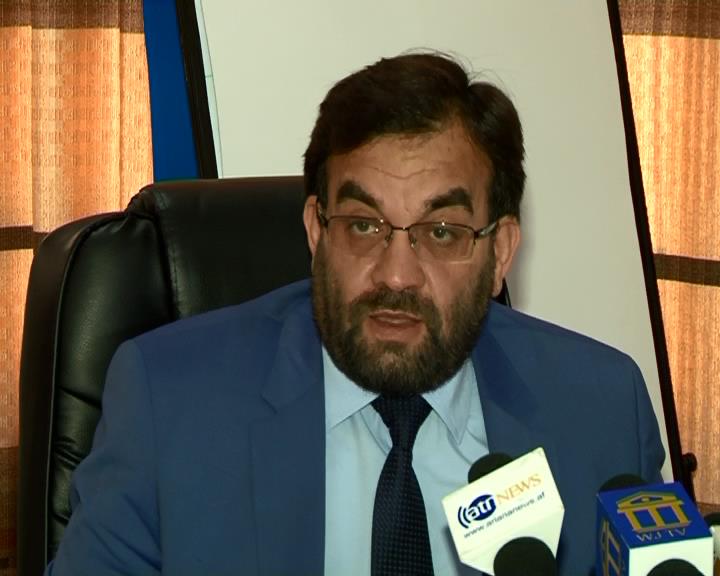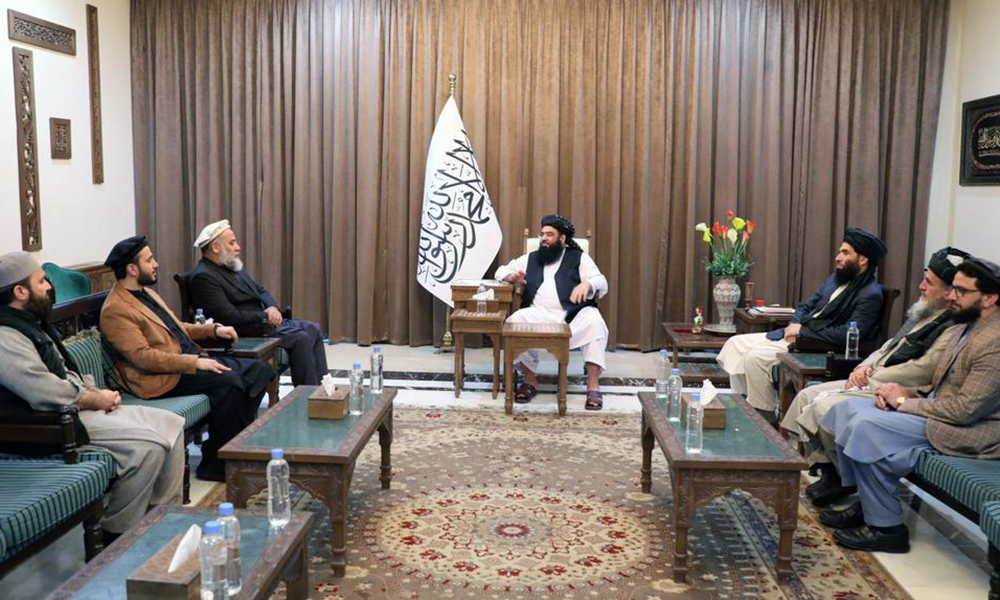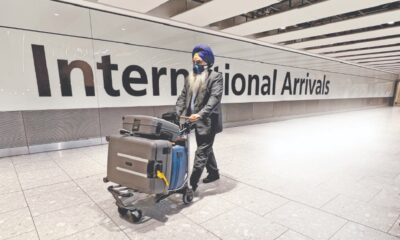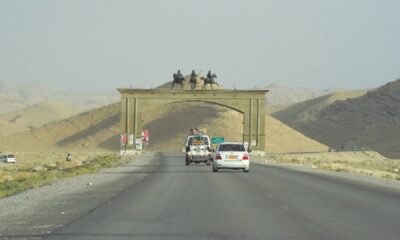Latest News
Afghanistan water sources use by neighboring countries

The fears of a security breakdown in Afghanistan boil the larger possibility of an economic collapse. The country’s revenues seem abysmal, and the mismanagement of billions of dollars in aid has turned it entirely dependent on foreign donations and the presence of foreign troops.
With Afghanistan being largely an agricultural country, investment in the water sector should have been a natural priority for sustainable economic development. Yet, that is not the case. In the Afghanistan National Development Strategy, a framework for allocating international aid, water does not figure as a core development sector. Only 5 percent of development has gone into the water sector during the past decade.
The Ministry of Water and Energy says that Afghanistan water resources reaches to 57 billion cubic meters which the most parts of it use by neighboring countries.
Along the Afghanistan’s borders, villagers see their water flow into the neighboring countries without being able to use it for their own local fields. The scarcity of water has led to tensions between tribes and villages.
The ministry if water declared that the continuation of insecurity caused Afghanistan fails to effectively use its water from the construction of dams and other projects.
Officials in the ministry noted that the residents of the country must cooperate with the government in providing the security of water and electricity projects.
“The construction of dams takes long time and in some cases the works have not been done properly and on time. In addition, the main problem is insecurity that cause the projects face a deadlock,” Ali Ahmad Osmani, minister of Water and Energy said.
One of Afghanistan’s missed opportunities in the last decade was its failure to legislate a comprehensive water law. Existing law does not define water rights.
Land owners are also owners of water and landless farmers have no rights to water. The water management institutions are highly ineffective.
The lack of a database of natural resources and the limited ability of the government to collect data is another challenge and a major obstacle to planning and development.
Afghanistan has a population of 29 million, with 79% of the population living in rural areas. Only 27% of its population has access to improved water sources, and it goes down to 20% in rural areas, the lowest percentage in the world.
The numbers get even worse when you look at the percentage of people with access to improved sanitation facilities. With the numbers at 5% nationwide, and only 1% in rural areas, Afghanistan again ranks the worst in the world.
In Kabul, the capital, with a population of 6 million, 80% of the people lack access to safe drinking water, and 95% lack access to improved sanitation facilities.
Analysts say that reaching the safe driniking water is another challenges of Afghanistan residents which the people are suffering from.
Water is a collective issue for Afghanistan and its neighbors. Any solution should therefore be multinational. Nations involved in Afghanistan, in particular US-led forces, should avoid politicizing this problem as it is so vital to the future of Afghanistan and the region as a whole.
Investment decisions should be based not on efforts to deprive neighboring countries of water but on avoiding waste and improving utilization of resources.
Without regional cooperation, Afghanistan will be faced with deeper and unresolvable challenges that will be even more difficult to solve after most international forces leave in 2014.

Latest News
More needs to be done to boost local industry, says Kabir

The deputy prime minister for policy, Mawlavi Abdul Kabir, met with Nooruddin Azizi, Acting Minister of Commerce and Industry, at Sapidar Palace on Tuesday and discussed issues around the quality of domestic products and the need to grow and develop the industrial sector.
Azizi said that good trade relations with neighboring countries has resulted in stable prices of goods in the country.
He said the Ministry of Commerce and Industry works closely with the private sector. As a result, the private sector functions in a befitting manner and the Islamic Emirate has provided necessary facilities.
Azizi said that based on the Islamic Emirate’s good economic policies, there has been a significant development in the import/export sector in the country.
Kabir in turn voiced appreciation for efforts by the leadership of the Ministry of Commerce and Industry and said: “The unprecedented efforts of the IEA’s administrations and the stability of the Afghan currency caused the price of food ingredients to remain in the right state and our people also be able to buy essential materials.”
He emphasized the need to work for a balance in trade with neighboring countries, and said more efforts were needed to improve the quality of domestic products and to grow the sector.
Latest News
Russia and Tajikistan hold joint military drills along Afghanistan border

Russia and Tajikistan conducted a joint four-day military exercise along the border with Afghanistan in order to be prepared for any “potential threats”, Tajik media reported this week.
Russian military personnel from the 201st military base in Tajikistan participated in this exercise. Reports stated military personnel practiced various combat tactics, especially tactics to counter terrorist groups that illegally enter Tajikistan.
This comes amid repeated concerns expressed by Afghanistan’s neighbors about what they claim are terrorist threats originating from Afghanistan.
The Islamic Emirate has not yet commented on the drills but has repeatedly denied the presence of terrorist groups in the country. The IEA has also continuously said no militant group will be allowed to threaten another country from Afghanistan.
Latest News
Media Violation Commission bans two TV channels

The Media Violations Commission has ordered Noor and Barya TV channels to stop broadcasting and to appear in court, state-run Bakhtar News Agency reported on Tuesday.
ّIt is said that the decision against the channels was taken for “not observing the principles of journalism.”
-

 Regional5 days ago
Regional5 days agoIndian foreign ministry advises against travel to Iran, Israel
-

 Latest News5 days ago
Latest News5 days agoLightning strikes in Helmand kill one, injure three
-

 Latest News4 days ago
Latest News4 days agoTop former US general claims Daesh-Khorasan is ‘on the upswing’
-

 Business4 days ago
Business4 days agoAfghanistan reaches self-sufficiency in production of 133 items: MoIC
-

 Sport3 days ago
Sport3 days agoACL draw to be broadcast live on ATN channels
-

 Health4 days ago
Health4 days agoMajority of Afghans with mental disorders are women: officials
-

 Regional3 days ago
Regional3 days agoIRGC chief warns of harsher response if Israel attacks Iran
-

 Regional4 days ago
Regional4 days agoGunmen kill 9 men after abduction in southwest Pakistan

![water - _16_09_2015_DARI_SOT.avi_snapshot_00.17_[2015.09.16_16.49.59]](http://ariananews.af/wp-content/uploads/2015/09/water-_16_09_2015_DARI_SOT.avi_snapshot_00.17_2015.09.16_16.49.59-300x240.jpg)














